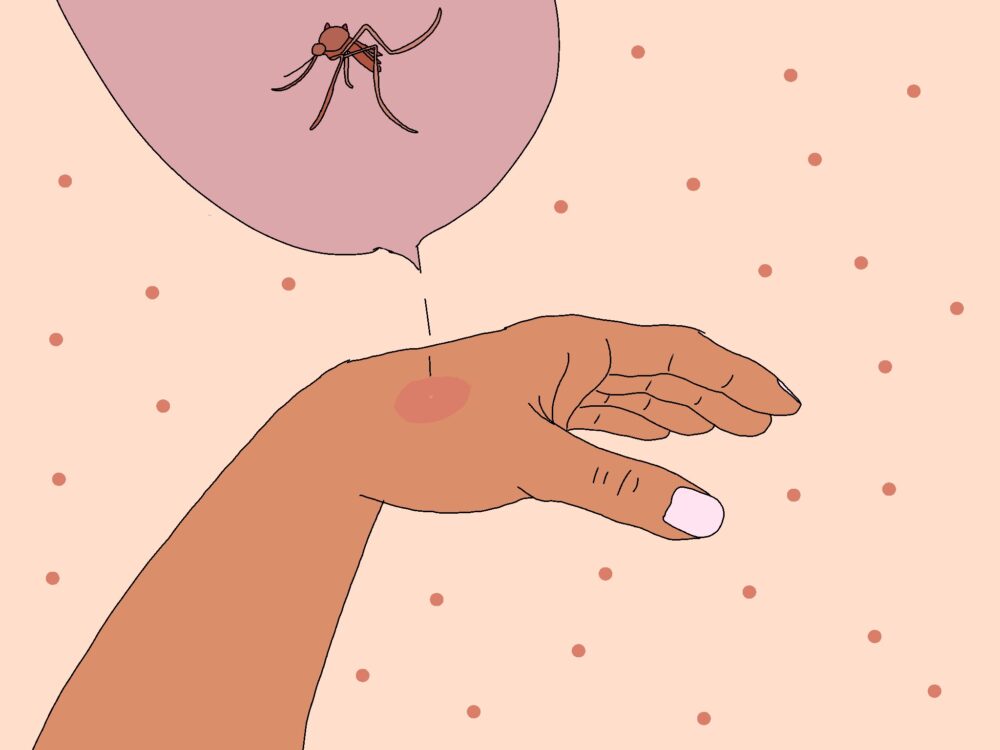
By Charlyne Nguyen
With the summer heat gradually lasting longer each passing year, many people have probably noticed the increase in mosquitoes lingering around their houses longer too.
Many call mosquitos pests while others are more extreme and consider them to be bloodthirsty killers. After all, they do persistently buzz around people and other animals and spread disease all throughout the world.
The presence of mosquitoes poses the question of whether they contribute to the world in any way that is essential, or if everyone can make do without the buzzing and bloodsucking. Many scientists are still trying to answer this question, with the majority considering them to be “more of a hassle than they have value.”
Cons
Anyone who has ever been bitten by a mosquito knows the pain a mosquito bite causes. This is caused by the human body’s reaction to the bite which releases histamine, leading to itchiness, inflammation and, in some cases, disease and death.
Mosquitoes are known to carry diseases, including the West Nile virus, malaria, dengue fever and yellow fever.
Forty percent of the world’s population is susceptible to malaria, with one child dying every 40 seconds.
Yellow fever is another possible result of a mosquito bite. It’s not as common as malaria, but it still threatens people worldwide. There are usually 200,000 cases a year with about 30,000 deaths.
Mosquito-related diseases cause over 1 million human deaths worldwide each year. The American Mosquito Control Association states that mosquitoes “cause more human suffering than any other organism.”
Here in the United States, death from mosquito bites isn’t a common occurrence like in tropical parts of the world, but people still need to look out for them—especially during the warm weather.
Mosquitoes are attracted to sweat, due to lactic acid, uric acid, ammonia and other components that come from sweat.
Gas is another thing mosquitoes are attracted to. People lure mosquitoes to them just by exhaling; and since breathing occurs in the upper portion of the human body, this is what causes mosquitoes to buzz around people’s heads so often.
It’s one thing to get bitten on your arms or legs, but bites on the face cause itchiness and possible self-esteem issues if those bites leave dark marks.
Pros
Unlike their female counterpart, male mosquitoes lack the body part that would allow them to pierce through skin and suck out blood. Instead of consuming blood, male mosquitoes feast on the nectar of plants.
The same thing can be said about female mosquitoes if they aren’t sucking on blood. They too are considered pollinators and rely on nectar for energy.
This is a good thing because pollination is essential for more plants to grow and stay healthy. Unlike bees, mosquitoes can also pollinate plants that live in wet environments.
Mosquitoes are also meals for birds, bats and spiders, contributing to the animal food chain. When mosquitoes are still in their early stages of development, known as larvae, they eat waste products in water, such as dead insects, in turn making nitrogen available to the surrounding plant life.
Without nitrogen, plants wouldn’t be able to utilize chlorophyll in order to absorb sunlight. Through the process of photosynthesis, the energy from sunlight, along with water and carbon dioxide, is used to produce sugar for plants. Plants then create oxygen for all living organisms on Earth.
In recent years, scientists have pondered over the matter of whether or not mosquitoes can be used for medical reasons. If it may be so, scientists believe that mosquito saliva has the potential to treat cardiovascular disease.
If mosquito saliva ends up being the solution to cardiovascular disease, 1.5 million strokes and heart attacks may be prevented each year in the United States alone.
Even though the question of whether or not mosquitoes are essential still lingers, there’s no doubt that mosquitoes do in fact contribute to the world in some ways. Some might think these contributions are minor, but there’s the possibility of an ecological imbalance if all mosquitoes were wiped off from the face of the Earth.





